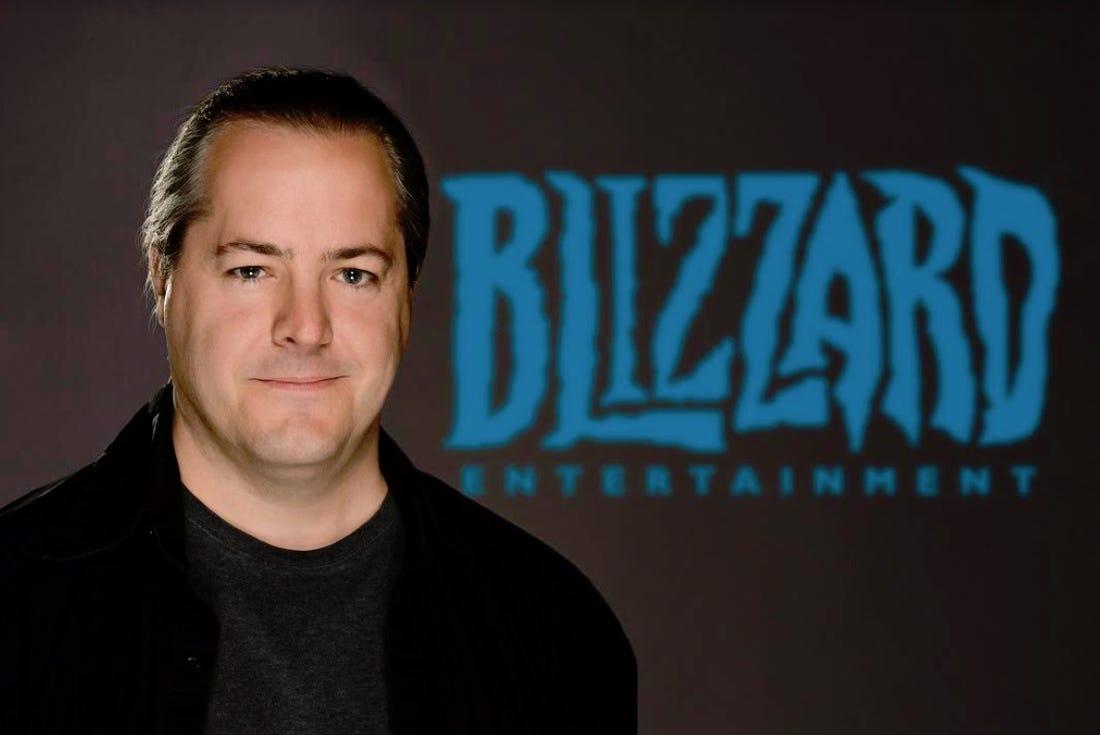
Linguist believes Chinese authors wrote Blizzard HK statement
Blizzard’s president J. Allen Brack released a statement regarding the company’s decision to ban Ng “blitzchung” Wai Chung from their Heartstone tournaments and take back his winnings after the player made a political statement in favor of Hong Kong’s liberation.
But not everyone appreciated the sentiment. In fact, some are even saying it’s not written by Brack at all, but is instead written by Chinese authors.
A linguist and esports graphic designer going by the name “Bluebell,” or “Boo!=bell” on Twitter, took to Twitter to point out why they believe that may be the case, something they claim they have been quiet about for a while “out of fear.”
“Before i go into this, i want to point out that the tone and language is all over the place– some are more native EN phrasings, others seem like typical CN, which makes me think there’s some cobbling together here,” they started.
“Hello Blizzard community. . .”
The opening line of the letter already had the Twitter user suspicious. A native Chinese speaker, the English major noted that the use of a spaced out ellipses is quite common in Chinese writing. In English letters, most start with a comma instead.
“The actions that we took over the weekend are causing people to question if we are still committed to these values. We absolutely are and I will explain.”
The Twitter user pointed out that the structuring of this paragraph was questionable. They explained: “In Chinese writing, it’s typical to add what an English teacher might call ‘topic sentences’ at the beginning and end of paragraphs.”
They continued to explain that this isn’t as conventional in English, and can often just sound “heavy-handed.”
“Second, what is the role of shoutcasters for these broadcasts?”
The linguist then pointed out that “headers containing complete clauses or rhetorical questions” are common in formal Chinese documents, but are not seen as often in English writing since it’s considered clunky.
In the letter, Brack would seemingly ask these questions and then answer with an indented paragraph. To the linguist, this also seemed peculiar. It seemed copied and pasted, as opposed to a more natural continuation of the press release.
“OK, what could Blizzard have done better, and where do we go from here?”
The use of “OK” in the header makes the English major feel that there are a minimum of two voices clashing in this letter.
“Whoever wrote this and whoever wrote the indented statement ‘copy and pasting official Blizz statements’ is even weirder – if there IS an official Blizz statement why are we getting it in this wrapper?” they asked.
“But playing fair also includes appropriate pre-and post-match conduct, especially when a player accepts recognition for winning in a broadcast. When we think about the suspension, six months for blitzchung is more appropriate, after which time he can compete in the Hearthstone pro circuit again if he so chooses. There is a consequence for taking the conversation away from the purpose of the event and disrupting or derailing the broadcast.”
Said the linguist: “We then get into this long section where the grammatical indicators become apparent using, ‘when we think about…’ instead of the present participle (‘thinking’) or something else because ‘think’ isn’t really the best word here– it’s too personal for a statement, another CN sign”
According to Boo!-bell’s analysis, verbs in the Chinese language don’t take on different conjugations no matter when the statement takes place. They will say “when I think” just as they would say “I once think” instead of “I once thought.” The words “thought” and “thinking,” they offered, just don’t exist in the Chinese language.
They continued: “So using ‘when we think about’ (maybe 當我們… in [Chinese]), which is kind of awkward and unfitting in [English], instead of ‘looking back on,’ or ‘considering our,’ etc. is a red flag in the same vein.”
The writer questioned why “with regard to” was used instead of “regarding,” which they called “just weird.”
“There is a consequence for taking the conversation away from the purpose of the event and disrupting or derailing the broadcast.”
The linguist finally stated that there are no plurals in Chinese writing, which makes the statement “there is a consequence” instead of the common English phrase of “there are consequences” is suspicious.
While this is all speculation from the mind of a knowledgable user on Twitter with no direct access to the letter’s point of origin, it’s hard to deny that there are some odd phrasings and sentence structures in Brack’s letter. Many Blizzard opponents are already calling the statement insincere, and this only strengthens that view.
But it’s also possible that the letter is indeed from Brack, hoping to explain the situation from the company’s point of view.
Either way, it doesn’t seem as though Blizzard’s statement has done much to quell speculation and controversy around the company.
Recommended

Here’s how to play Marvel Rivals closed beta playtest
How to jump into the Marvel Universe.

What games would be at the Esports Olympics in 2025?
Would CS2 be in the Olympics gamelineup?

What did MrBeast crewmember Ava Kris Tyson do?
There are several accusations.







